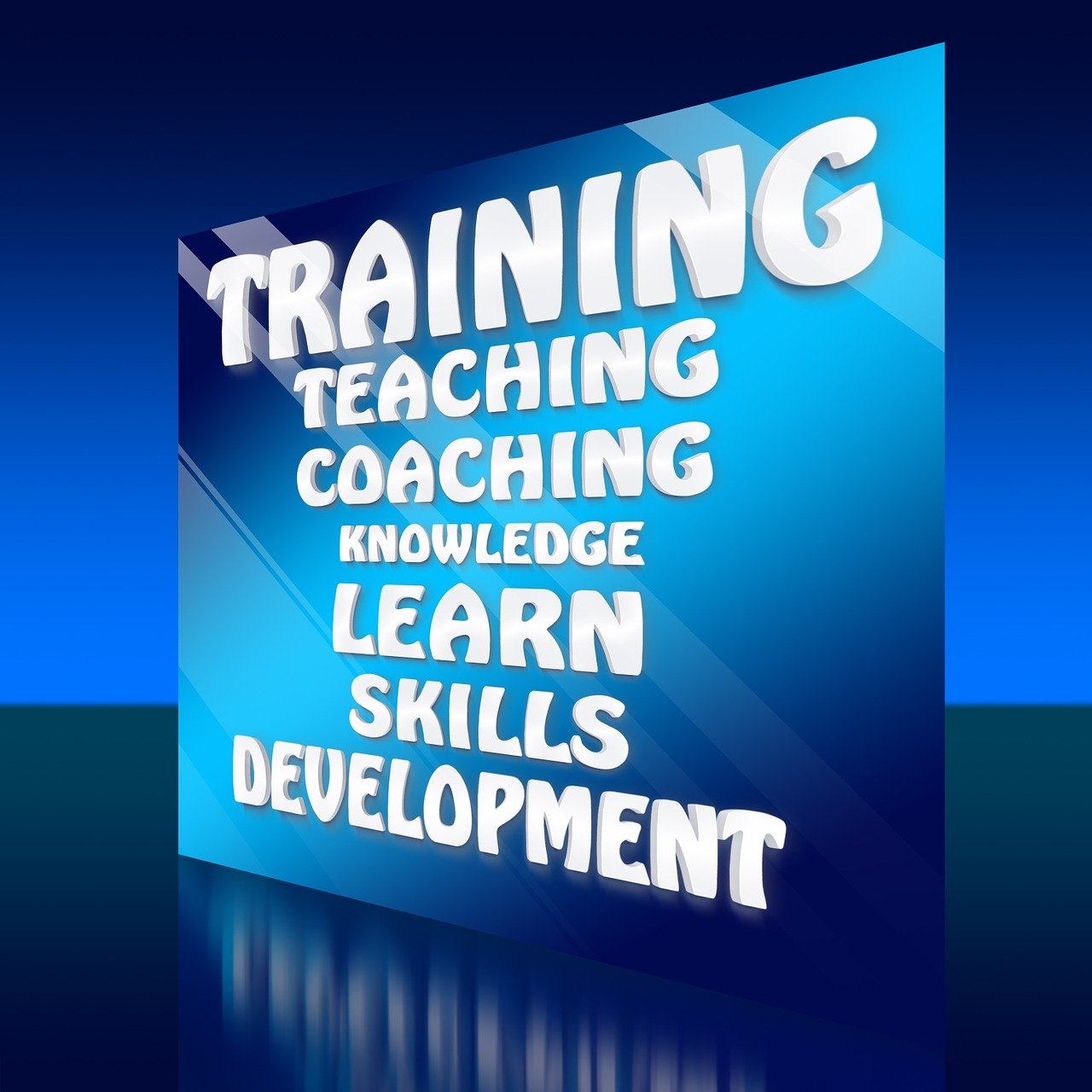Do you have a wealth of knowledge in a particular subject or possess a unique skill that you’re eager to share with others? Now is the perfect time to channel your expertise by offering tutoring services online or offline. Whether you excel in math, science, literature, or possess a rare talent like playing a musical instrument or speaking a foreign language, there are plenty of individuals out there who could greatly benefit from your guidance. By sharing your expertise, you not only have the opportunity to help others succeed but also to explore your passion further and potentially earn some extra income. So, why wait? Start sharing your knowledge and make a positive impact in someone’s life today!

1. Online Tutoring Services
Benefits of Online Tutoring
Online tutoring offers numerous benefits for both tutors and students. One of the primary advantages is the convenience it provides. With online tutoring, you can teach or learn from the comfort of your own home, eliminating the need for extensive travel or commuting. This makes scheduling sessions much easier and allows for greater flexibility in terms of time and location.
Another major benefit of online tutoring is the access it provides to a wide range of resources and materials. Tutors and students can easily share files, documents, and educational websites during sessions, enhancing the learning experience. Additionally, online platforms often offer interactive features such as virtual whiteboards and video chat, which further enriches the tutoring experience.
Popular Online Tutoring Platforms
There are several popular online tutoring platforms available that facilitate virtual learning. These platforms provide a user-friendly interface, secure communication channels, and various tools to aid in the teaching process. Some well-known online tutoring platforms include TutorMe, Chegg Tutors, and Wyzant. These platforms allow tutors to create profiles, set their own rates, and connect with students seeking their expertise.
Tips for Effective Online Tutoring
To ensure effective online tutoring sessions, it is important to follow a few key tips. First and foremost, establish a reliable internet connection and test it prior to each session. This will help prevent any disruptions during the session, ensuring a smooth experience for both you and your student.
Another important tip is to create a conducive learning environment. Find a quiet and well-lit space where you can focus solely on tutoring. Minimize distractions by turning off notifications on your devices and closing unnecessary tabs or applications on your computer.
Additionally, it is essential to be well-prepared for each session. Review the material beforehand and have any necessary resources readily available. This will help you deliver a more effective and efficient tutoring experience.
Setting Up a Virtual Classroom
Creating a virtual classroom is essential for online tutoring. Consider using video conferencing platforms such as Zoom or Google Meet to interact with your students in real-time. These platforms offer features like screen sharing and breakout rooms that can enhance the tutoring experience.
In addition to the video conferencing platform, utilize online tools such as shared documents and virtual whiteboards to facilitate collaboration and engagement. Sharing documents allows you to share learning materials, exercises, or practice problems with your students, while virtual whiteboards enable you to illustrate concepts and visually explain complex topics.
2. Offline Tutoring Services
Advantages of Offline Tutoring
Offline tutoring also has its own unique advantages. One of the main benefits is the opportunity for face-to-face interaction. Being physically present with your student allows for better non-verbal communication and the ability to gauge their understanding more accurately. Offline tutoring may also provide a more personalized experience, as you can tailor your teaching methods to suit the individual needs and learning styles of your student.
Additionally, offline tutoring allows for a more hands-on approach. You can engage your student in interactive activities, such as experiments or practical exercises, that may not be as easily facilitated in an online setting. This can contribute to a more immersive learning experience and help solidify the concepts being taught.
Finding Offline Tutoring Opportunities
To find offline tutoring opportunities, start by reaching out to your local community. Inform schools, libraries, and community centers about your tutoring services and inquire if they have any students in need of academic assistance. Networking with other educators or joining tutoring organizations in your area can also help connect you with potential students.
It is also beneficial to offer your services to friends, family, and neighbors who may have children or know someone in need of tutoring. Word-of-mouth referrals can be a powerful tool in building your offline tutoring business.
Designing a Tutoring Curriculum
When designing a tutoring curriculum for offline sessions, it is important to first assess the needs and goals of your student. Talk to the student and/or their parents to understand the specific areas they are struggling with or wish to improve upon. This will help you tailor your curriculum to their individual needs.
Break down the subjects or skills into manageable units or lessons. Create a timeline or schedule to ensure progress is being made and goals are being met. Consider incorporating a mix of theoretical and practical exercises to provide a well-rounded learning experience.
Creating Engaging Offline Lessons
Engaging offline lessons are crucial for effective tutoring sessions. Think outside the traditional lecture-style teaching and incorporate interactive activities and hands-on exercises whenever possible. Use visual aids, manipulatives, and real-life examples to make the lessons more relatable and interesting.
Additionally, encourage open communication and create a safe and supportive environment for your student. Foster a positive relationship and instill a sense of confidence in their abilities. This will help motivate them to actively participate and engage with the material.
3. Identifying Your Expertise
Reflecting on Your Skills and Knowledge
Before embarking on a tutoring journey, take some time to reflect on your own skills and knowledge. Identify the subjects or skills you excel at and have a deep understanding of. Consider your educational background, work experience, and personal interests. Reflecting on your own expertise will help you identify the areas in which you can confidently offer your tutoring services.
Identifying Subjects or Skills You Excel at
Once you have reflected on your skills and knowledge, narrow down the subjects or skills you excel at. Focus on the areas where you have the most expertise and can deliver the highest quality instruction. For example, if you have a strong background in mathematics and enjoy teaching it, consider specializing in math tutoring. By narrowing your focus, you can establish yourself as an expert in that particular field.
Considering the Demand and Market
While identifying your expertise, it is important to consider the demand and market for your chosen subjects or skills. Research the local community, educational institutions, and online platforms to understand the demand for tutoring in your area of expertise. Analyze the competition and determine if there is a niche or unmet need that you can fulfill.
Researching Competitors
Researching competitors in your chosen field is essential to understand the market dynamics and learn from established tutors. Explore their teaching methods, curriculum design, and pricing structures. Identify what sets you apart from them and how you can differentiate yourself in the tutoring industry. Use this information to refine your tutoring strategy and offer unique value to your potential students.
4. Creating a Tutoring Strategy
Defining Your Target Audience
In order to create an effective tutoring strategy, it is important to define your target audience. Consider the age, grade level, and specific needs of the students you wish to tutor. For example, if you excel at teaching high school science, your target audience may be high school students preparing for standardized exams or struggling with specific science concepts. Understanding your target audience will help you tailor your lessons and marketing efforts accordingly.
Setting Clear Learning Objectives
Once you have defined your target audience, it is important to set clear learning objectives for your tutoring sessions. Clearly define what you aim to achieve with each student and communicate these objectives to them and their parents. This will provide a sense of direction and motivation for both you and your students.
Designing Customized Lesson Plans
Customized lesson plans are key to delivering effective tutoring sessions. Personalize each lesson plan to align with the individual needs and learning styles of your students. Consider their strengths, weaknesses, and interests when designing the lessons. Incorporate various teaching methods and resources to cater to different learning preferences.
Establishing a Pricing Structure
Establishing a pricing structure is an important aspect of creating a tutoring strategy. Consider the current market rates for tutoring services in your area and factor in your expertise and experience. Determine if you will charge hourly or offer package deals. Be transparent with your pricing and communicate it clearly to prospective students.

5. Building Your Online Presence
Creating a Professional Website
Building a professional website is essential for establishing your online presence as a tutor. Include information about your expertise, qualifications, and the subjects or skills you offer tutoring in. Showcase testimonials and success stories from previous students. Make sure your website is visually appealing, easy to navigate, and mobile-responsive.
Utilizing Social Media Platforms
In addition to a website, utilize social media platforms to further promote your tutoring services. Create profiles on platforms such as Facebook, Instagram, Twitter, and LinkedIn. Share valuable educational content, insights, and tips to establish yourself as an authority in your field. Engage with your audience by responding to comments and messages promptly.
Developing a Strong Online Reputation
Building a strong online reputation is crucial for attracting students and gaining their trust. Encourage your satisfied students to leave reviews and testimonials on your website or social media profiles. Showcase these positive reviews as social proof of your expertise. Respond to any negative feedback or concerns in a respectful and professional manner.
Leveraging Online Marketplaces
Take advantage of online tutoring marketplaces to expand your reach and connect with potential students. Platforms such as TutorMe, Chegg Tutors, and Wyzant provide a ready-made platform for tutors to showcase their services. Create a compelling profile and highlight your expertise to attract students seeking tutoring in your subject areas.
6. Advertising and Marketing
Utilizing Online Advertising
Online advertising can be a powerful tool to reach a wider audience and attract potential students. Consider investing in targeted online advertisements on platforms such as Google Ads, Facebook Ads, or LinkedIn Ads. Define your target audience and craft compelling ad copy that highlights your unique selling points and the benefits of your tutoring services.
Creating Compelling Marketing Content
Create compelling marketing content to showcase your expertise and attract potential students. Write blog posts or articles related to your subject areas, offer valuable tips and insights, or create educational videos. Share this content on your website, social media platforms, and other relevant platforms to establish yourself as an authority and attract students.
Networking and Collaboration
Networking with other educators, tutors, and professionals in related industries can help you expand your reach and gain valuable insights. Attend industry events, join educational organizations, and participate in online forums or groups. Collaborate with other tutors to offer joint workshops or cross-promote each other’s services. Building a strong professional network can lead to referrals and mutually beneficial partnerships.
Utilizing Referrals and Testimonials
Leverage the power of referrals and testimonials to attract new students. Encourage your satisfied students to refer their friends or classmates to your tutoring services. Offer incentives such as discounted sessions or referral bonuses to motivate them. Display testimonials prominently on your website and social media platforms to showcase the positive experiences of your past students.

7. Establishing Credibility and Expertise
Creating an Impressive Resume or Portfolio
Creating an impressive resume or portfolio can help establish your credibility and expertise as a tutor. Highlight your educational background, certifications, teaching experience, and any relevant achievements. Include any publications, presentations, or research work you have contributed to in your field. Make sure your resume or portfolio is well-organized and visually appealing.
Obtaining Relevant Certifications
Obtaining relevant certifications can add credibility to your tutoring services. Research certifications in your subject areas or teaching methodologies and consider pursuing those that align with your expertise. Display your certifications prominently on your website and mention them in your marketing materials to showcase your commitment to continuous professional development.
Presenting at Webinars or Conferences
Presenting at webinars or conferences in your field is a great way to establish yourself as an expert in your subject area. Look for opportunities to share your knowledge and insights with a wider audience. Prepare engaging presentations and offer valuable takeaways for attendees. Networking at these events can also lead to valuable connections and potential students.
Contributing to Educational Publications
Contribute articles or blog posts to educational publications or websites in your field. This allows you to share your expertise with a larger audience and establish yourself as a thought leader. Reach out to editors or website administrators to inquire about guest writing opportunities. Make sure to include a bio or link to your tutoring services in your contributor profile.
8. Delivering Effective Tutoring Sessions
Building Rapport with Students
Building a strong rapport with your students is essential for effective tutoring sessions. Create a welcoming and supportive environment where students feel comfortable asking questions and expressing their concerns. Establish open lines of communication and actively listen to your students to understand their individual needs.
Employing Various Teaching Methods
Employing various teaching methods is important to cater to different learning styles and make the sessions engaging. Incorporate visual aids, hands-on activities, real-life examples, or technology-based tools depending on the subject and preferences of your students. Varying your teaching methods helps maintain student interest and enhances their understanding of the material.
Adapting to Individual Learning Styles
Every student has a unique learning style, and adapting to their individual needs is crucial for effective tutoring sessions. Observe your students’ preferred modes of learning (e.g., visual, auditory, kinesthetic) and tailor your teaching approach accordingly. Customize the pace, level of detail, and instructional methods to best meet the needs of each student.
Providing Constructive Feedback
Providing constructive feedback is a vital part of the tutoring process. Offer praise and encouragement for your students’ progress and achievements, while also providing specific feedback on areas that need improvement. Be supportive and focus on guiding them towards the right solutions, rather than simply pointing out mistakes. Constructive feedback helps students grow and build confidence in their abilities.

9. Evaluating Student Progress
Conducting Assessments and Tests
Conducting regular assessments and tests is important to gauge your students’ progress and identify any areas of weakness. Design quizzes, tests, or assignments that align with the learning objectives of your tutoring sessions. Analyze the results to understand each student’s strengths and areas for improvement. Share the assessment feedback with your students and use it to guide future lesson planning.
Tracking and Analyzing Student Data
Track and analyze student data to gain insights into their progress and learning patterns. Use spreadsheets or specialized software to record student attendance, grades, and performance on assessments. Identify trends or patterns that can inform your teaching approach and enable you to provide targeted support to individual students.
Identifying Strengths and Weaknesses
Identifying your students’ strengths and weaknesses is crucial for tailoring your tutoring sessions. Observe their performance during sessions and review their assessment results to identify areas where they excel and areas that require additional support. Celebrate their strengths and focus on addressing their weaknesses to help them succeed.
Adjusting Lesson Plans Accordingly
Based on the evaluation of student progress, adjust your lesson plans accordingly. Modify the content, pace, or teaching methods to address any gaps in understanding. Offer additional practice materials or exercises that target specific areas of weakness. Flexibility in adjusting your lesson plans ensures that your tutoring sessions remain effective and beneficial for your students.
10. Continuous Professional Development
Staying Updated with Industry Trends
Continuously staying updated with industry trends and advancements is important for maintaining your effectiveness as a tutor. Stay informed about the latest curriculum changes, teaching methodologies, and educational technologies relevant to your subject areas. Subscribe to educational journals, attend webinars or conferences, and engage in online forums or communities to stay abreast of current trends.
Attending Workshops and Trainings
Attending workshops and trainings is an excellent way to enhance your teaching skills and expand your knowledge base. Look for professional development opportunities that align with your subject areas or teaching methods. Participate in workshops led by experts in the field or enroll in online courses to further improve your tutoring capabilities.
Engaging in Peer Learning Communities
Engaging in peer learning communities can provide valuable insights and support from fellow tutors and educators. Join online platforms or forums where tutors can connect, share resources, and exchange ideas. Collaborate with other tutors to discuss best practices, seek advice, and learn from each other’s experiences. Peer learning communities foster continuous growth and improvement as a tutor.
Seeking Feedback and Self-reflection
Seeking feedback from your students, peers, and even parents can provide valuable insights into your teaching methods and areas for improvement. Encourage honest feedback and reflect on the feedback received. Engage in self-reflection to identify strengths and weaknesses in your tutoring approach. Use this feedback and self-reflection to continuously refine and improve your tutoring services.


